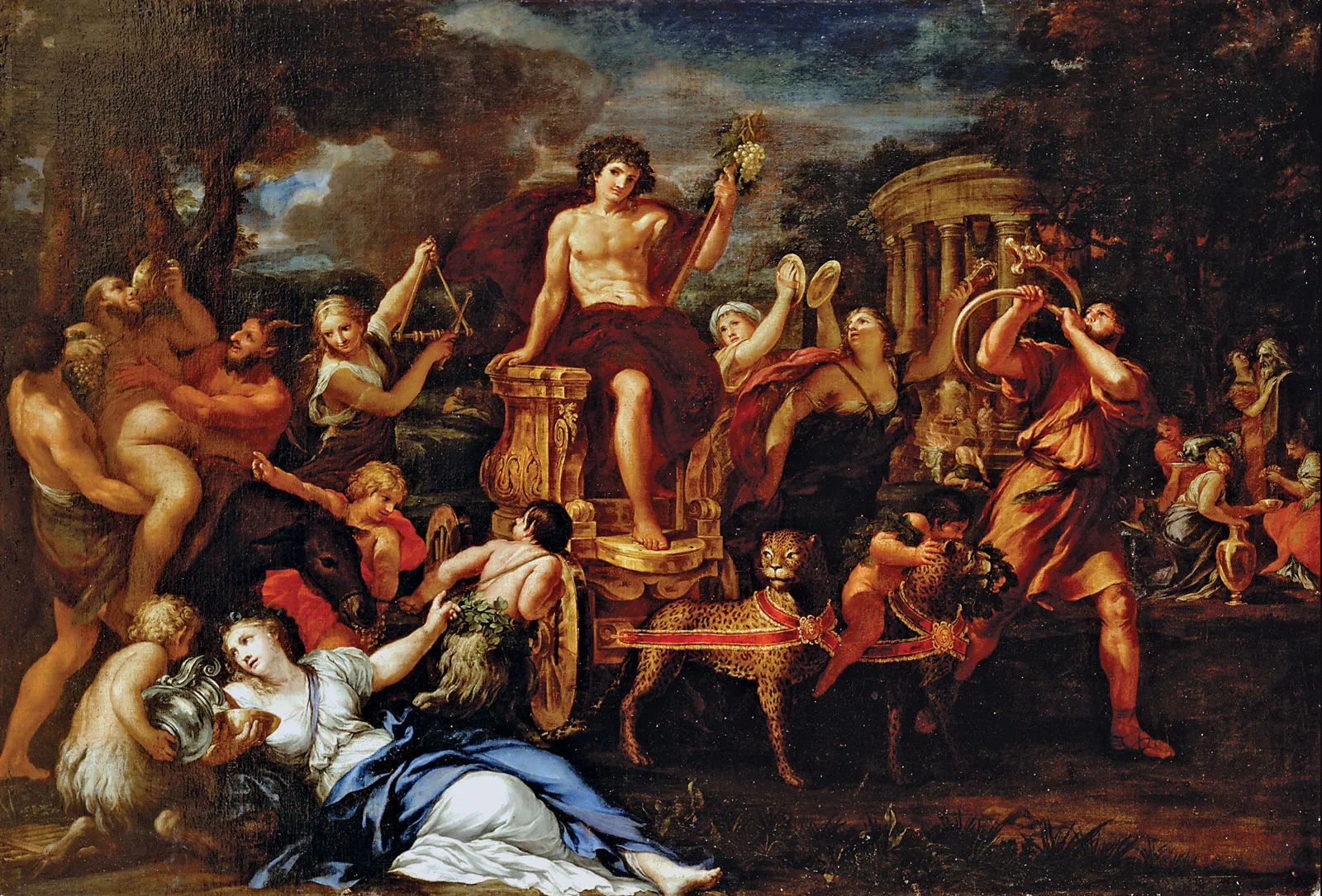Dionysian mystery cult
In the shadowed groves and moonlit hills of ancient Greece, where ivy crept like veins over stone altars and the air pulsed with the thrum of distant drums, the Dionysian Mysteries unfolded. These were not rites for the faint-hearted. They whispered of freedom beyond the rigid lines of civilization, promising initiates a taste of something forbidden, raw, and eternal—a communion with Dionysus, the god of wine, ecstasy, and divine madness.
The Call of Dionysus: God of Paradox
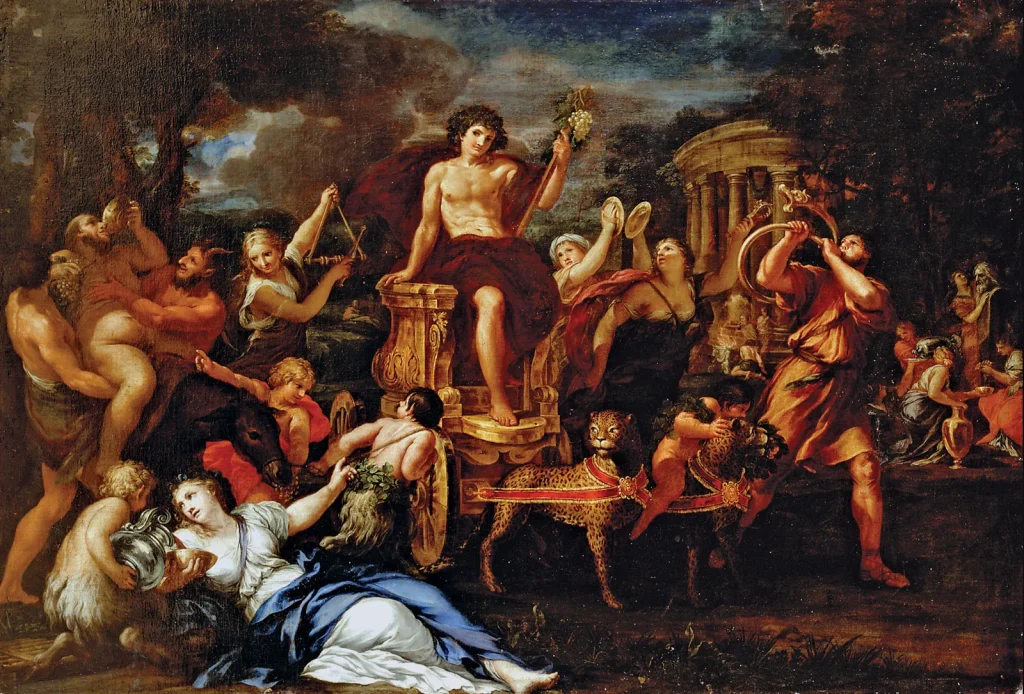
Dionysus was a god born twice—a child of both life and death, both man and divine. His very essence was contradiction:
- He brought joy with wine, but also frenzy and delirium.
- He symbolized fertility and growth, yet his rites danced on the edge of chaos and destruction.
- To his followers, he was the liberator of souls, freeing them from the shackles of identity, reason, and even mortality itself.
His devotees believed that by surrendering to Dionysus, they could dissolve the barriers between the self and the cosmos, touching the divine in its most primal, untamed form.
The Ritual: Descent into Ecstasy
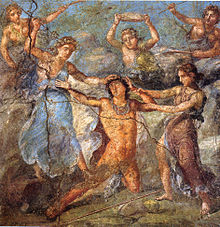
The Dionysian Mysteries were secret rites, hidden from the uninitiated. To step into them was to step outside of ordinary reality. The initiates—rich and poor, men and women alike—abandoned their societal roles, donning wild costumes, ivy crowns, and animal skins. The night was their cathedral, the wilderness their temple.
Music and Dance:
- The air trembled with the beat of drums, the clash of cymbals, and the wail of the aulos (a double-piped flute).
- Dancers spun in frenzied circles, their bodies twisting in ecstasy, driven by the god’s spirit.
Intoxication:
- Wine flowed freely—not just to dull the senses, but to loosen the soul, making it receptive to divine possession.
- But it wasn’t about drunkenness. The wine was sacred, a liquid bridge to Dionysus himself.
The Thiasos (Sacred Procession):
- Followers paraded with thyrsi (fennel stalks wrapped in ivy), symbolic of both fertility and divine power.
- They called upon Dionysus with cries of “Evoe!”—a wild, untranslatable exclamation of ecstatic joy.
The Maenads: Women in Divine Frenzy
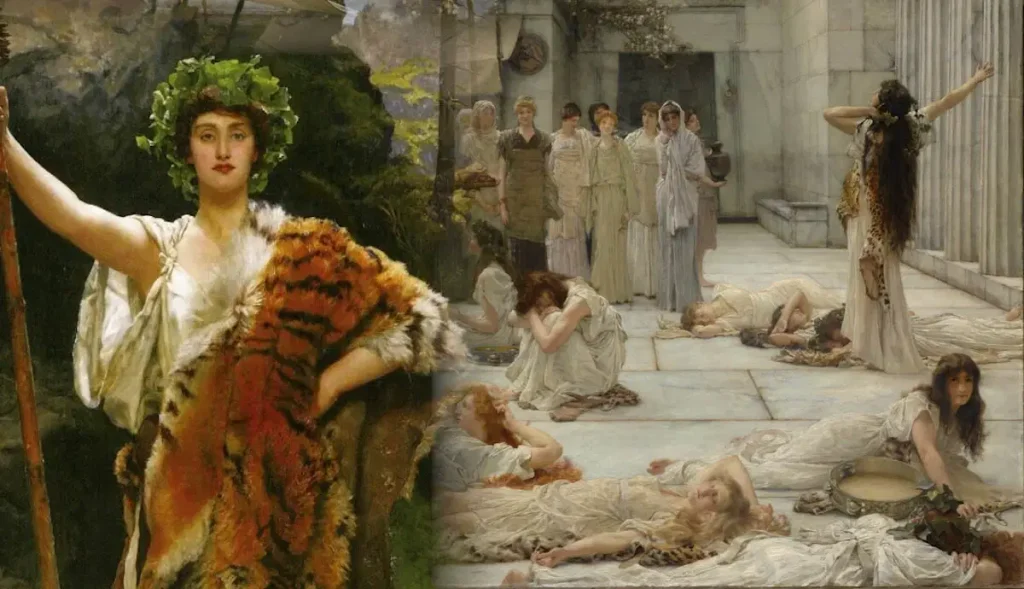
At the heart of the mysteries were the maenads—women who left behind their homes, shedding the constraints of domestic life to dance with the god in the wilderness. They embodied the divine madness (mania) that Dionysus inspired.
In myth, maenads could:
- Tear apart wild animals with their bare hands in a state of divine possession (sparagmos).
- Enter trances where they felt no pain, no fear, only the overwhelming presence of the god.
They weren’t simply “mad.” They were free—liberated from the chains of patriarchal society, existing in a space where the divine pulsed through their veins.
Death and Rebirth: The Sacred Secret
Beneath the frenzy was a profound spiritual truth. The Dionysian Mysteries weren’t just about ecstasy—they were about transformation. Initiates symbolically “died” to their old selves and were reborn as something new.
This wasn’t metaphorical.
- Ritual Dismemberment (Sparagmos): In some rites, symbolic acts of tearing apart (like animal sacrifices) represented the god’s own myth—Dionysus Zagreus was torn apart by the Titans and reborn.
- The Promise of Immortality: Through this symbolic death, initiates believed they could transcend mortality, their souls forever bound to the eternal cycle of life, death, and rebirth.
The Wrath of the God
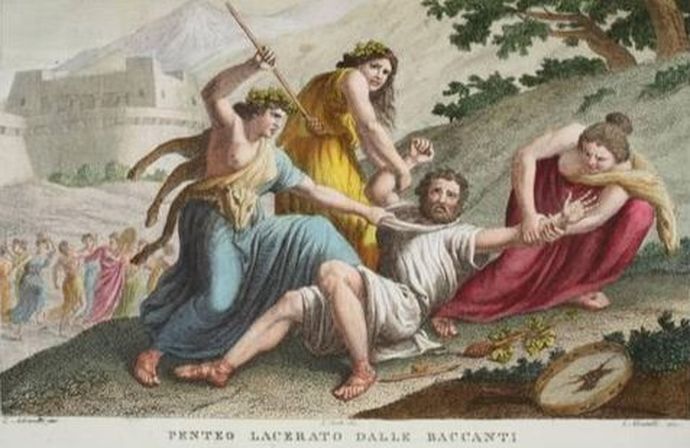
But Dionysus was not always gentle. He was a god who demanded recognition. In myths like Euripides’ The Bacchae, King Pentheus of Thebes mocked the god, denying his divinity. For his arrogance, Dionysus drove Pentheus to madness, luring him to spy on the maenads. In a frenzy, the king’s own mother—possessed by Dionysus—tore him limb from limb, not realizing she was killing her son until the madness lifted.
This was Dionysus’s warning:
- Resist the divine, and be broken.
- Embrace the madness, and be reborn.
The Last Echoes of the Mysteries
As Christianity spread through the Roman Empire, the Dionysian Mysteries faded. Their sacred groves grew silent. But their echoes survived—in the theater, in art, and in the very idea that to be human is to seek moments of transcendence, to lose oneself in something greater.
The Dionysian Mysteries were not just about worshipping a god.
They were about becoming the god—if only for a fleeting, ecstatic moment, lost in the wild dance of existence.

